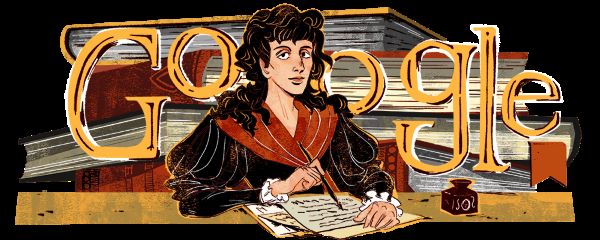Marianne Adelaide Hedwig Dohm famously known as Hedwig Dohm was a writer and women’s rights activist. She was known as one of the first feminist theorists to argue that gender-specific behaviour is learned through social conditioning rather than being determined by biology.
Hedwig was born on 20 September 1831 to a tobacco manufacturer Gustav Adolph Gotthold Schlesinger and her mother was Wilhelmine Henriette Jülich. She died on June 1, 1919
She had 18 siblings and found great interest in reading and going to school but was forced to drop school at the age of 15 so that she could help with the house chores.
But she had high hopes to study further and convinced her parents to put her in a women’s teachers’ college.
Google Doodle mentions: “Dohm was born in Berlin, Germany on this day in 1831 to a family of eighteen children. Dohm loved reading from an early age and found school exciting. However, her parents forced her to quit her formal education at fifteen and help out around the house.”
“With hopes of continuing to learn, Dohm convinced her parents to let her attend Lehrerinnenseminar, a women’s teachers’ college,” it adds.
In 1853, Hedwig Dohm married Ernst Dohm, the editor-in-chief of the weekly satirical magazine Kladderadatsch. They had five children, four of whom were girls. Hedwig continued to educate her daughters during their early years.

Source: Google Doodle
What were the Contributions of Hedwig Dohm?
Google is celebrating Dohm's 192nd birthday because she was a groundbreaking feminist and author who contributed significantly to the fight for women's rights. Her work continues to be relevant and inspiring to women today.
When Hedwig’s children grew up, she decided to pursue her career as a writer in 1870. She published many strong pieces according to Google Doodle.
What the Clergy Thinks About Women (Was die Pastoren von den Frauen denken) and The Antifeminists (Die Antifeministen) are two works by Hedwig Dohm that focus on the conservative views on women's rights in Germany at the time.
What the Clergy Thinks About Women focuses on the writings of two conservative pastors who argue that higher education is a threat to women. Dohm criticises their arguments, pointing out that they are based on outdated stereotypes.
The Antifeminists focused on people who opposed women's rights in Germany at the time. Dohm satirizes their views, showing how they are illogical and harmful.
Apart from these content pieces, Hedwig had some major contributions:
- She was a strong advocate for women's education and employment rights.
- Her work had a significant impact on the early German feminist movement.
- She was one of the few activists who fought for women’s right to vote.
- She wrote different books such as Sibilla Dalmar, Schicksale Einer Seele, and Christa Rolan.
- Hedwig Dohm was also the founder of the Deutsche Frauenverein Reform, which advocated for women's right to study all subjects in universities. In 1888, she wrote the first chapters of the movement's manifesto.
Comments
All Comments (0)
Join the conversation